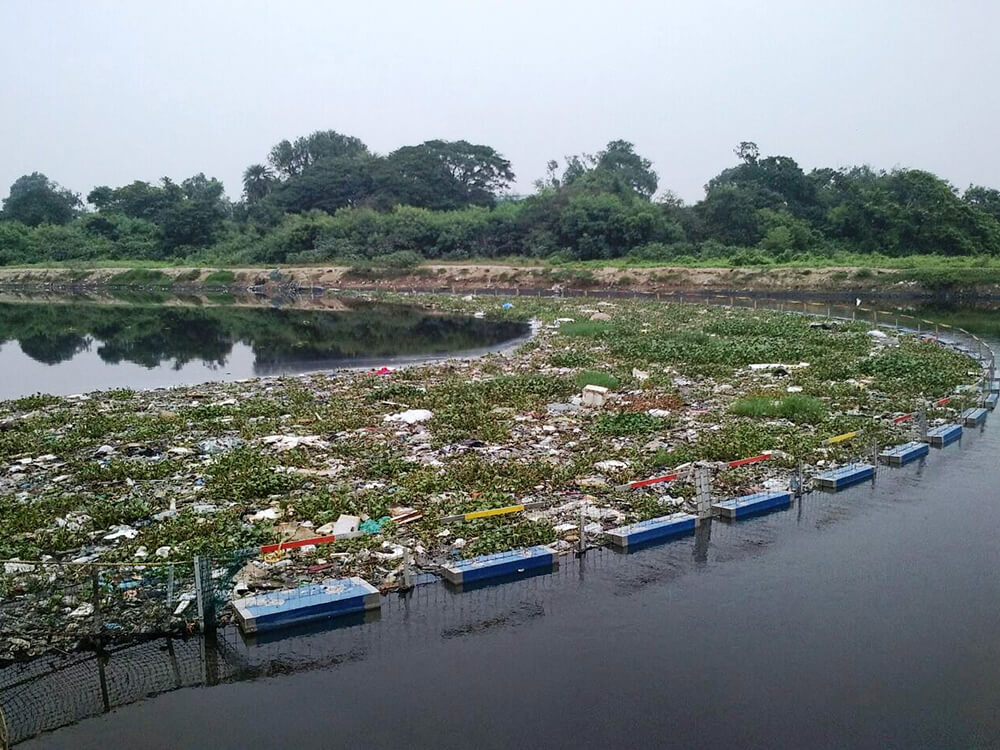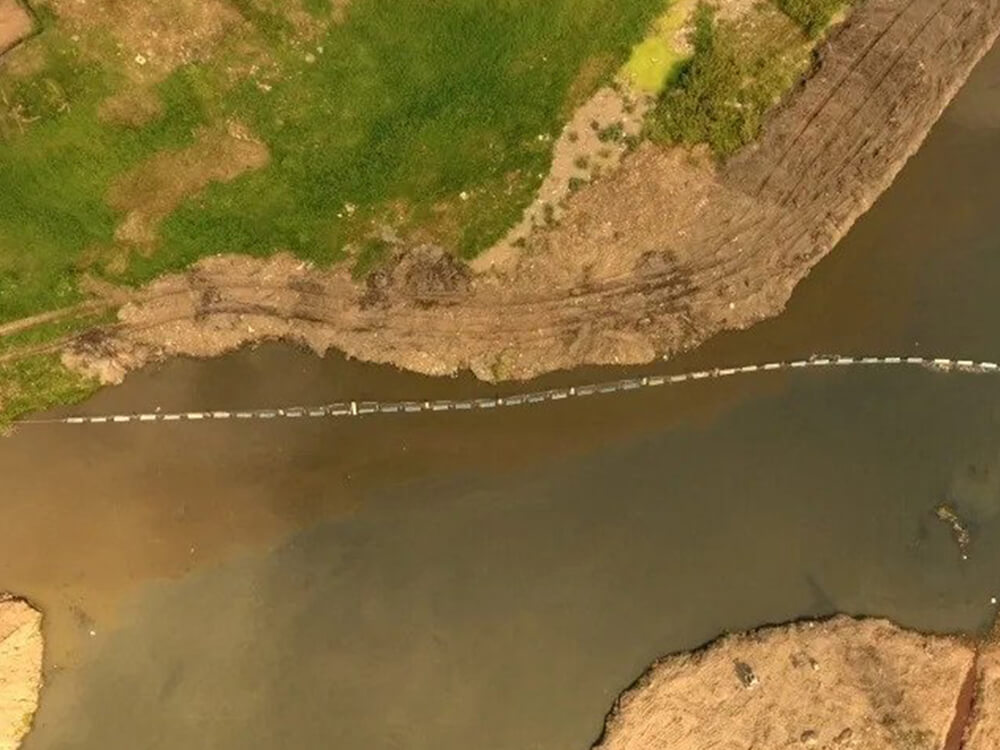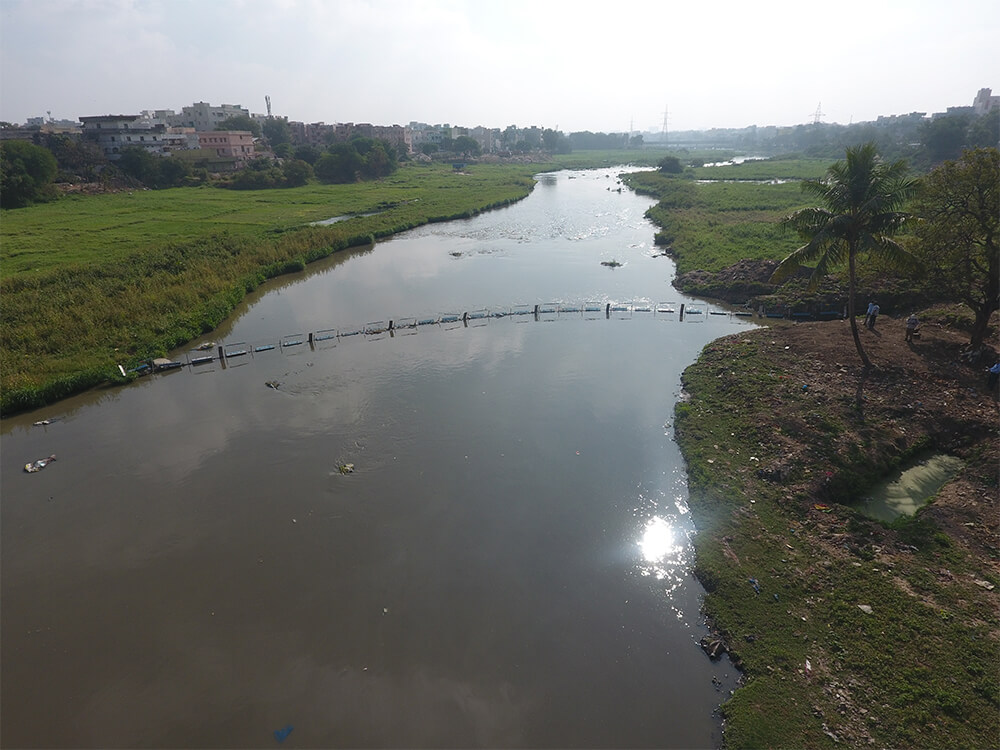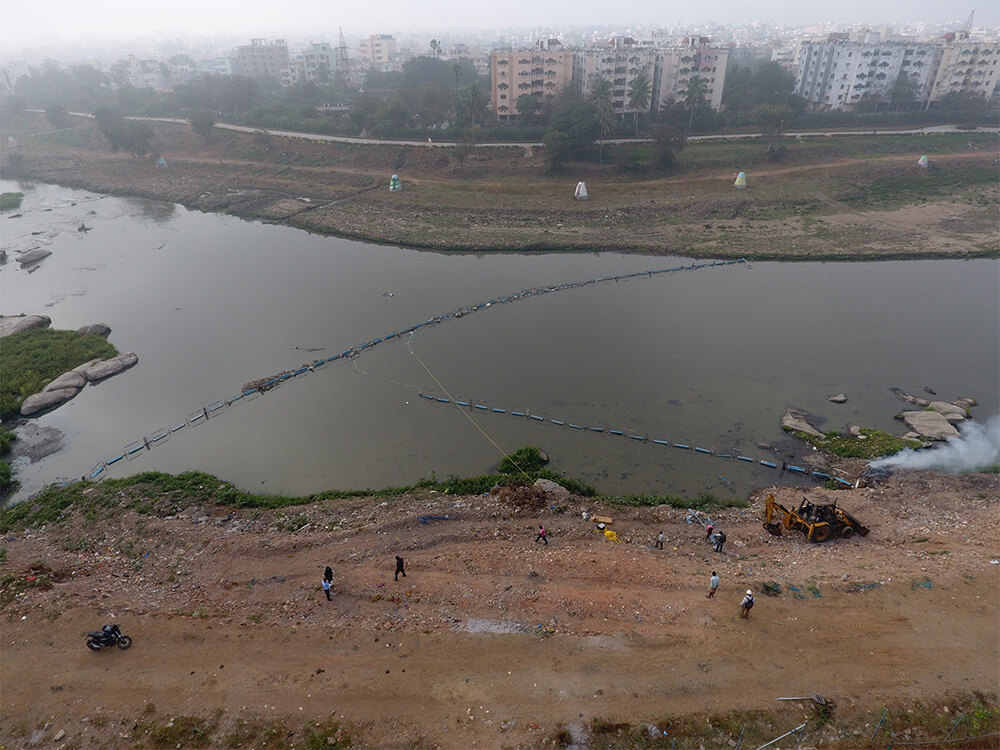A floating trash barrier, also known as a floating litter boom or marine debris barrier, is a device designed to collect and contain floating debris in bodies of water such as rivers, lakes, and oceans. It is used to prevent plastic waste, litter, and other pollutants from entering sensitive ecosystems and causing harm to marine life.
The primary purpose of a floating trash barrier is to intercept and capture debris before it can disperse further or sink into the water column. These barriers typically consist of a floating boom made of durable materials like plastic or metal, which is designed to float on the water surface. The boom is usually connected to anchors or a stationary structure to keep it in place.
The design of a floating trash barrier can vary depending on the location, water conditions, and the specific goals of the project. Some barriers are stationary, while others are designed to be semi-mobile or mobile, allowing them to move with currents and effectively capture floating debris over a larger area.
These barriers often incorporate other components to enhance their efficiency, such as nets, screens, or skirts that extend below the water surface to capture debris at various depths. They may also include mechanisms to divert water flow or guide debris towards collection points for removal.
Once the floating trash barrier captures the debris, it needs to be regularly maintained and emptied to prevent overflow and ensure continued effectiveness. The collected waste can be manually removed by cleanup crews or using specialized equipment, depending on the scale of the operation.
Floating trash barriers have gained attention as a potential solution to address the growing problem of plastic pollution in water bodies. They can help prevent litter and plastic waste from entering oceans, where they can cause harm to marine life and contribute to the formation of large garbage patches. While they are not a standalone solution, they are part of a broader strategy to reduce plastic pollution and promote environmental stewardship.




